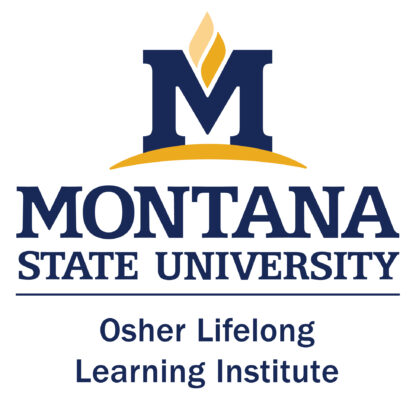Osher Lifelong Learning Institute (OLLI) (formerly Wonderlust) is a program of MSU Academic Technology and Outreach that offers lifelong learning opportunities for inquiring adults. There are no “requirements”. No grades. No papers. OLLI is simply learning for the sake of learning. Experts on a wide variety of timely topics share their knowledge related to local, state and national issues.
-
Jeff Mihelich: “The State of the City: Impact of the Worker Shortage and Other Issues in the News”
Jeff Mihelich, Bozeman’s city manager, delivered an overview of the challenges the city faces in managing rapid growth and minimizing the impact of worker shortages. Mihelich outlined strategies for reducing the adverse effects Bozeman is currently experiencing. He also described the many opportunities the city could have with the support of an expanded workforce and citizenry in the future.
Mihelich began as Bozeman’s city manager in spring 2020. He is a credentialed city manager with the International City/County Management Association. He has 28 years of experience in large cities, small towns and counties, including his most recent term as deputy city manager and chief operating officer of Fort Collins, Colorado.
It was recorded via Zoom on January 14, 2022.
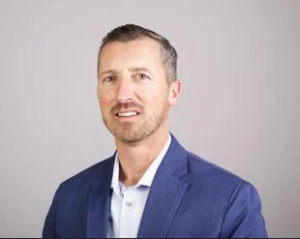 Bozeman CIty Manager, Jeff Mihelichor Download
Bozeman CIty Manager, Jeff Mihelichor Download -
Impacts of Nonprofits in our Community
In this Friday Forum about The Impacts of Nonprofits in Our Community, Osher Lifelong Learning Institute at MSU Director, Bobbi Geise, introduces Richard Lyon, who moderated a discussion with Bridget Wilkinson, Executive Director of The One Valley Community Foundation, and Liz Moore, Executive Director of The MT Nonprofit Association. It was recorded via Zoom on December 10, 2021.
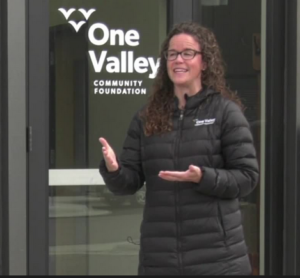 Bridget Wlkinson
Bridget Wlkinson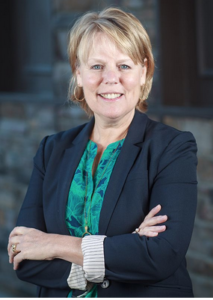 Liz Moore
Liz MooreYou can find out more about The One Valley Community Foundation by going to their website, onevalley.org and The MT Nonprofit Association by going to mtnonprofit.org.
or Download -
Jon Tester: How We Work Together To Find Common Ground
On January 15, 2021, the Osher Lifelong Learning Institute Friday Forum featured 3rd term Montana Senator Jon Tester discussing some of the challenges for the 117th Congress in a time of social division and media mistrust, as well as opportunities to move America forward with respect and common purpose. The session was conducted online, with moderator Paula Beswick relaying questions from the audience.
or Downloador Download -
J P Pomnichowski The 2021 Montana Legislative Session in a Covid-19 Pandemic
JP Pomnichowski is currently a member of the Montana Senate, representing Senate District 33 since 2013. She served as a House Representative from 2007 to 2013 for the 63rd House district. She is currently a whip for the Democratic Party in the Montana Senate.
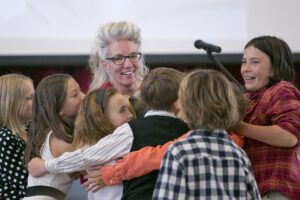
Typical of JP’s work was sponsoring SB 176 in 2015 in response to Longfellow 4th Grade students’ Earth Science studies to make “Scobey” the State Soil. (photo above)
She serves on the Gallatin Valley Community Radio’s Board of Directors, and she has been producing a daily program, Human Capital, since the beginning of the Covid-19 Pandemic. (https://kgvm.org/program/human-capital/)
This Friday Forum was recorded on December 11, 2020.
or Download -
Bill West – Public Land, Business and Local Community: A National Wildlife Refuge Example
On the evening of November 5, 2020, Bill West presented an on-line lecture titled, “Public Land, Business and Local Community: A National Wildlife Refuge Example”, hosted by the Belgrade Community Library in partnership with the Osher Lifelong Learning Institute at Montana State University (formerly Wonderlust)..
Bill West, who recently retired from the U.S. Fish and Wildlife Service after 30 years of managing National Wildlife Refuges in Montana, discussed land conservation across a patchwork of land ownership in the Centennial Valley. Located in Southwest Montana, north of the Continental Divide, the remote Centennial Valley consists of a high-elevation and nearly intact landscape of forest, sagebrush steppe, wet meadow and the largest wetland complex in the Greater Yellowstone Ecosystem. The valley is the upper most point of the Missouri/Mississippi watershed– more than 3,750 miles from the Gulf of Mexico–and includes the Red Rock Lakes National Wildlife Refuge. Can partnerships that respect the business climate of the local community while protecting public land result in a thriving local economy as well as successful conservation efforts?
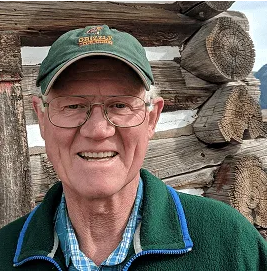
In his 30 years of managing wildlife refuges in Montana, including assignments at the National Bison Range and Red Rock Lakes National Wildlife Refuge, Bill West’s work involved partnership building for the conservation of fish and wildlife, neighbor/landowner relationships, sustainable agriculture, negotiations with Native American Tribal governments, and the management of wild bison, trumpeter swan, grizzly bear and Arctic grayling.
or Download -
Dale Martin – Coal, Copper, and Vermiculite: History and Future of Mining in Montana and the West
In this MSU Wonderlust Friday Forum presentation from February 14, 2020, Dale Martin discusses the history of miners and their sense of identity and pride in their work; mining communities and the boom-and-bust impact of mining on their economies; contemporary issues and controversies. Martin also discusses examples of three mining projects in Montana past, present, and future:
- the Libby mine with its asbestos-laced deposits of vermiculite,
- the electric power generating coal mines at Colstrip,
- and the proposed Black Butte copper mine on a Smith River tributary.
Martin is an adjunct professor of history at MSU and longtime MSU Wonderlust presenter on the history of Montana, the First World War, 20th century Middle East, and technology. He is also a mining and railroad historian of Montana and the West.
It was presented at the Bozeman Public Library.
or Download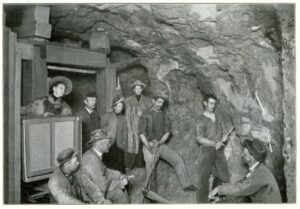
-
The Montana Economy and Taxation
Doug Young, Professor Emeritus at Montana State University, discusses changes in the Montana economy and in state and local taxation over the last 70 years, including the growing importance of capital income and transfer payments, whether agriculture and mining still play important roles, which industries are the largest employers in Montana, and the impact of the emerging high-tech sector. He also discusses taxation policy in Montana, including resort and local option taxes. Professor Young addresses these issues in a fact-based comparison of Montana’s taxes with those in neighboring states and national averages.
This presentation was delivered by webinar on April 23, 2020.
or Download -
Bozeman Parks and Trails Special District
The title for an MSU Wonderlust Friday Forum on March 13, 2020, was “Bozeman City Parks and Trails Maintenance Referendum – What is it? Who will pay for it?” If approved in the upcoming ballot in April, the proposed Parks and Trails Special District would authorize the City to levy annual assessments on real property within the city limits for the purpose of providing maintenance of City-owned or maintained parks and trails, including those currently maintained by private entities such as property owners’ associations.
Participating were Bozeman Mayor Chris Mehl, former Mayor Jeff Krauss, and moderator Sally Maison. Mehl and Krauss made opening statements regarding the proposed Parks and Trails District. This was followed by a lively question and answer session with the audience.
Recorded at the Bozeman Public Library on March 13, 2020.
or Download -
Impeachment: Past, Present, and Future
In this Wonderlust lecture, Dr. Nicol Rae, political scientist and Dean of the MSU College of Letters and Sciences, reviews and discusses the presidential impeachment power in the US Constitution and how it has played out over our history. Why did the framers give Congress the power to impeach and remove presidents? What are the criteria they set forth for this drastic action? What’s the history of our three presidential impeachments – and what are the political and governmental implications of the current impeachment proceedings? Dr. Rae asks whether we might now be living in an age of “symbolic impeachment.”
Recorded on January 10, 2020 at the Bozeman Public Library.
or Download -
The Role of Active Citizenship in Thriving Communities – Citizen Engagement
In this Friday Forum at the Bozeman Public Library on April 12, 2019, a panel discussed The Role of Active Citizenship in Thriving Communities, focusing on Citizen Engagement.
The panel consisted of former Bozeman Mayor, Carson Taylor; Gallatin County Manager, Jim Doer; Maddy Pope, Project Manager with Trust for Public Lands; and Heather Grenier, Director of HRDC.
or Download -
Laura S. Ziemer: Water Rights, Water Fights, Water Supremacy in the West
On the evening of April 4, 2019 at the Belgrade Public Library, Trout Unlimited’s Laura Zeimer, spoke about Water Rights, Water Fights, Water Supremacy in the West..
Frederick Remington’s painting, The Fight for the Water Hole, is mentioned early in her talk.
or Download
-
Assessing and Addressing Our Changing Climate: A Local View
At an MSU Wonderlust Friday Forum, Bozeman Deputy Mayor and Mayor-Elect Chris Mehl presents an overview of climate change in the Gallatin Valley-how it is affecting our natural resources and landscape, the ways the city is addressing its impacts, and how citizens can work individually and together to build a more resilient community. Also participating in answering audience questions were City Commissioner Terry Cunningham, Sustainability Program Director Natalie Meyer, and Water Conservation Technician Jessica Ahlstrom.
Recorded on January 11, 2019 at the Bozeman Public Library.
or Download -
Dean Nicol Rae: On Populism
This MSU/Wonderlust Friday Forum “on Populism”, features Professor of Political Science, Nicol Rae, Dean of MSU’s College of Letters & Science. It was recorded three days after the mid-term elections on November 9th, 2018 at The Bozeman Public Library. Dean Rae is introduced by Bob Hawkes.
or Download -
John Adams – The Future of Non-Profit Journalism: Dark Money in Montana and the Importance of Vigorous and Independent Reporting
This MSU/WONDERLUST Friday Forum features John Adams, award-winning investigative and political reporter and founder of Montana Free Press, discussing “The Future of Non-Profit Journalism: Dark Money in Montana and the Importance of Vigorous and Independent Reporting.” http://montanafreepress.org
He was featured in Kimberly Reed’s award winning documentary, Dark Money, which was broadcast on PBS’s POV, and can be viewed on-line til Oct. 31, 2018 https://www.pbs.org/video/dark-money-duhigg/
John Adams is introduced by C. D. Happel, incoming chair of the Friday Forum Committee of MSU Wonderlust. It was recorded at the Bozeman Public Library on October 12, 2018. Unfortunately, the final 10 minutes of the talk were not recorded due to technical difficulties.
or Download -
The 10 Top Events in the History of Yellowstone National Park
Lee Whittlesey, recently retired after a 50-year career with Yellowstone National Park, discusses major events from 1871-1995 that have shaped the park, including wildlife management, fire control, and human activities that have helped make Yellowstone what it is today. Lee has served as Park Archivist, Ranger, Tour Guide, and in recent decades as Park Historian. He is author of numerous books including Yellowstone Place Names and Storytelling in Yellowstone: Horse and Buggy Tour Guides, as well as articles on Yellowstone. He also worked with Ken Burns on The National Parks: America’s Best Idea and received an honorary doctorate from Montana State University in 2014.
Reading related to this presentation is listed in a bibliography provided by Lee Whittlesey. Recorded at the Bozeman Public Library as part of the MSU Wonderlust Friday Forum series.
or Download -
A Clovis Burial Site in Park County, Montana
The oldest positively dated evidence of humans in North America was found in 1968 on the Anzick property, just 40 miles north-east of Bozeman near Wilsall, MT. More than 150 artifacts of finely crafted stone and antler tools and weapons, along with the bones of a toddler which had been buried there for 11,000 years rocked the archeological world. Larry Lahren, Park County native, Professor of Archeology and founder of Anthro Research Inc, discusses his career, the Anzick Clovis burial find and his theories of how and why humans came to live in our area so many years ago.
Recorded on Sept. 6, 2018 at the Belgrade Community Library.
or Download -
The Social Promise & Ethical Perils of Genome Editing Technologies
Dr. Kristen Intemann, Associate Professor of Philosophy at MSU, presents an overview of genome editing technology—what it is and how it works—and discusses some of its potential risks and how scientists, philosophers, and others are thinking about its research and regulation.
This talk was sponsored by Wonderlust and recorded at the Bozeman Public Library on April 20th, 2018.
or Download -
Conserving Open Space in the Gallatin Valley: A Look Toward the Future
What are the challenges of preserving land for agriculture and recreation along with water and wildlife in Montana’s fastest growing county? Brendan Weiner, program director for the Gallatin Valley Land Trust, and Gallatin County Commissioner Don Seifert presented an interactive discussion on this topic at the Wonderlust Friday Forum on May 18, 2018. (more…)
or Download -
Former Supreme Court Justice Pat Cotter on How the Montana Court System Works
Montana Supreme Court Justice (ret.) Pat Cotter, spoke at a civics Education Day presented by MSU Wonderlust, The League of Women Voters of the Bozeman Area, and Bozeman Public Library on April 23, 2018. The full title of her talk, given in two parts, was: The Montana Supreme Court: Structure, Function, and the Law and Principles that Guide the Decision-Making Process. (more…)
or Downloador Download -
Wonderlust Side Trip – A Changing Cuba: Myths and Realities
For over half a century, travel restrictions to Cuba have made this island nation somewhat of a forbidden fruit to many Americans, making us especially curious about our neighbor and eager to learn more. Contrary to the common view of Cuba as unchanging over the past decades, cultural and societal shifts inside the country, particularly since 1959, have been considerable. In this program, Jan Strout and Lauren Gette-King explored the major changes, focusing on such topics as health care and education, economic reforms, and social justice advances and challenges. They also discussed the current status of diplomatic relations between Cuba and the U.S.- and their meaning for citizens of both countries.
The talk is split into the main presentation and the following Q&A session.
or Downloador Download
